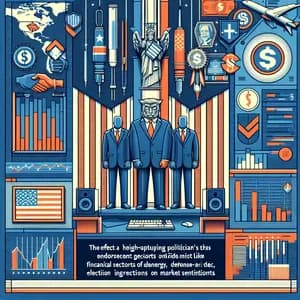Inflation & Trade Truce: Navigating the Stock Market's New Landscape

The Implications of Rising Inflation and Trade Truce on the Stock Market
As inflation concerns loom large over the financial markets, investors are keeping a close eye on the latest Consumer Price Index (CPI) report. The CPI for May is anticipated to show an increase in annual inflation, which has historically had a profound impact on stock performance. Coupled with the recent U.S.-China trade truce framework, the market dynamics are shifting, creating both challenges and opportunities for savvy investors.
Inflation: A Double-Edged Sword
Rising inflation can lead to higher interest rates, which typically pressure stock valuations. Companies that can pass on costs to consumers or maintain margins may fare better in this environment. Notably, Procter & Gamble Co. ($PG) and Coca-Cola Co. ($KO) are examples of firms with strong pricing power, allowing them to navigate inflationary pressures more effectively than others. Their well-established brands and extensive product lines enable them to increase prices without significantly impacting demand.
Trade Truce: A Breath of Fresh Air
On the other hand, the recently agreed-upon trade truce framework between the U.S. and China could alleviate some market anxieties, particularly for tech companies heavily reliant on global supply chains. Apple Inc. ($AAPL) stands out as a key player here. With its vast manufacturing operations in China, any easing of trade tensions could bolster Apple’s profit margins, making it an attractive investment in a potentially volatile market.
Tech Sector Resilience
The tech sector, particularly, has shown resilience amid fluctuating economic conditions. Companies like NVIDIA Corp. ($NVDA) and Advanced Micro Devices, Inc. ($AMD), which dominate the semiconductor industry, are crucial in the ongoing U.S.-China tech race. The anticipation of a more stable trade environment could enhance their growth prospects, especially as demand for chips continues to soar in various sectors, including AI and automotive.
The Bigger Picture
While the immediate reactions to the CPI report and trade agreements will shape market sentiment, investors should also consider the long-term implications. The growing federal debt, as highlighted in recent analyses, poses risks that could ultimately affect borrowing costs and consumer spending. Understanding the interplay of these economic factors is essential for making informed investment decisions.
In conclusion, as we brace for the latest CPI report, investors should focus on companies that can adapt to inflationary pressures and benefit from improved trade relations. Keeping a keen eye on developments in these areas will be crucial for navigating the stock market in the coming months.
Read more: CPI Report Today: Dow Futures Slip; U.S. and China Agree Trade Truce Framework How the U.S. Government Borrows to Fund Its Massive Budget Shortfall Nasdaq Gains on Hopes for U.S.-China Chips Deal




